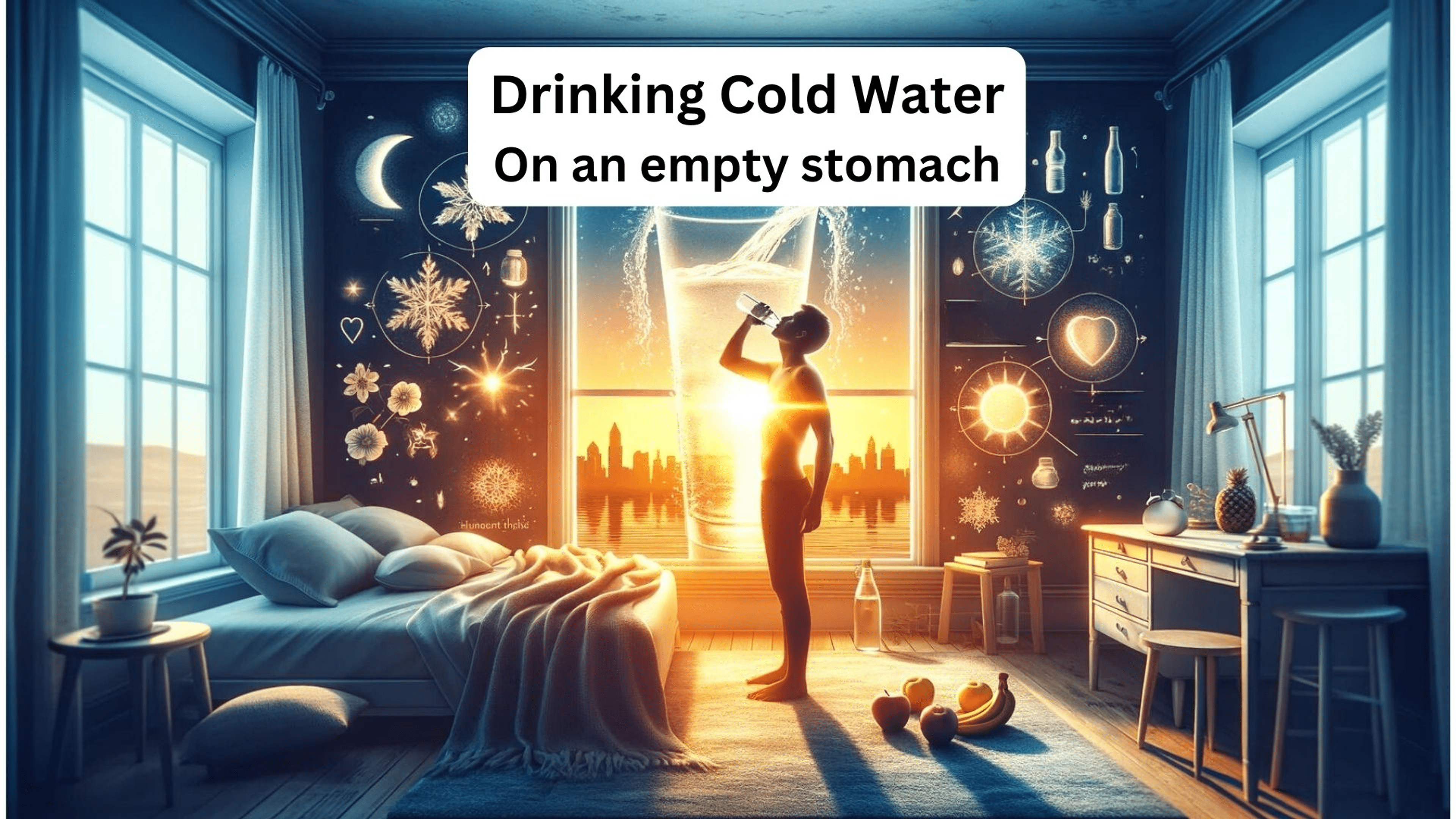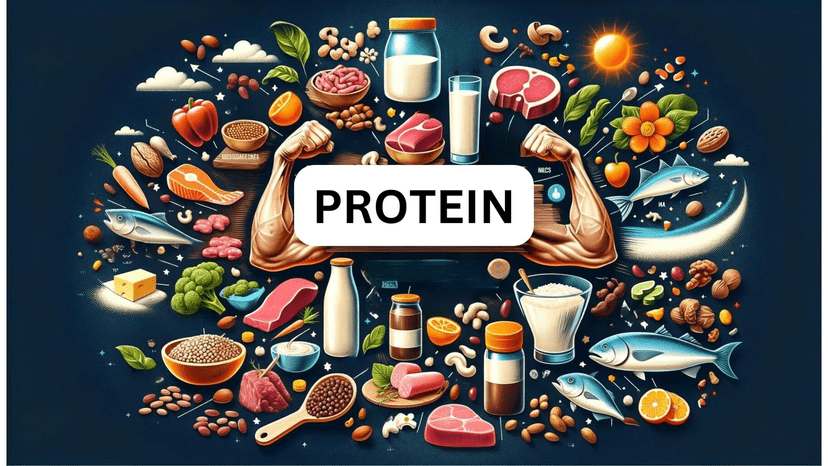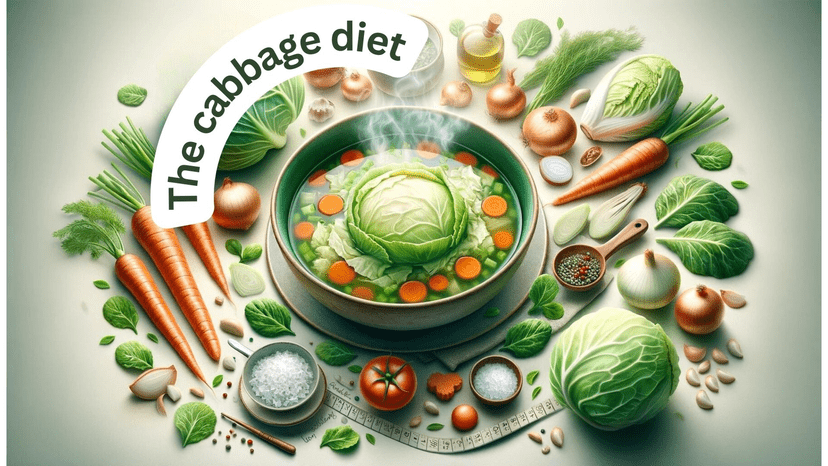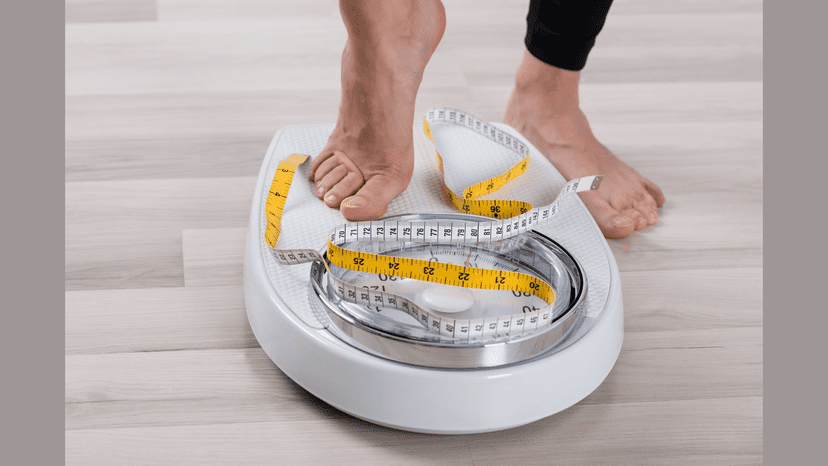Last updated on Monday, 11 March, 2024
What Happens When You Drink Cold Water on an Empty Stomach

## Immediate Effects of Drinking Cold Water on an Empty Stomach
Your body keeps a relatively stable internal temperature to sustain physiological processes. When you consume cold water, especially on an empty stomach, your body must work harder to maintain this equilibrium. Here's a detailed breakdown of what takes place in your body.
### Body's Reaction to Cold Temperatures
The initial impact of consuming cold water on an empty stomach has a direct connection to the body’s thermal homeostasis. Proteins and enzymes in the body function optimally at 37 degrees Celsius, or 98.6 degrees Fahrenheit. Drinking cold water can lower the body’s internal temperature, compelling the body to expend energy to warm the cold water in the [GI](/glossary/weightloss/glycemic-index) tract up to body temperature. This causes an **initial rise in metabolic rate**.
Beyond this, cold-induced thermogenesis activates brown fat, also known as brown adipose tissue ([BAT](/glossary/weightloss/brown-adipose-tissue-BAT)), a type of fat that burns calories and releases energy as heat instead of storing it. This process can contribute to a temporary rise in metabolic rate, but the long-term implications are not fully understood and may not result in significant weight loss or metabolic benefits.
### Impact on Digestion and Stomach Lining
Introducing cold water to an empty stomach may cause a slight, temporary contraction of the stomach lining, which can be perceived as a tightening sensation. This is a normal digestive response as the stomach and intestines adjust to the change in temperature. However, without food in the stomach acting as a buffer, some people might find this sensation uncomfortable, while others may not notice it at all.
Furthermore, the stomach secretes digestive enzymes that work best at body temperature. When cold water is ingested, it can cause a temporary slowdown of the digestive process. Although this deceleration is not significant enough to cause digestive problems in healthy individuals, it's advisable for those with pre-existing digestive conditions to consult with their healthcare provider before making any substantial dietary changes.
### Hydration and Metabolic Rate
In terms of hydration and metabolic rate, drinking cold water—or water in any temperature—on an empty stomach helps kickstart your metabolism for the day and aids in the removal of toxins stored overnight.
Water, irrespective of its temperature, supports multiple bodily functions, including regulating body temperature, aiding digestion, carrying nutrients to cells, and cushioning joints. Starting your day with water hydrates cells pretty much immediately, which promotes a healthier metabolism and cellular function.
In conclusion, drinking cold water on an empty stomach may have slight and temporary effects on the body. However, always keep in mind that while the metabolic and thermogenic responses may be intriguing from a physiological perspective, they don't necessarily translate into substantial health advantages or accelerated weight loss. It's essential to incorporate other dietary, behavioral, and lifestyle changes to reap long-term health benefits.
## Potential Health Benefits
Exploring the potential outcome of a daily routine may lead us to have new insights into improving our overall health. One such routine to discuss is drinking **cold water on an empty stomach.**
Water is the core ingredient of life, and the temperature of this universally available drink can have various effects on the body. Cold water especially has myths and studies associated with it, some claiming it as a secret to wellness. But what is the science behind this? Let’s delve into a discussion on how such a simple act can potentially contribute to our health.
### Boosting [Metabolism](/glossary/health/metabolism) and Energy Levels
Upon waking up, our body is in a state of sleep-induced dehydration. The introduction of cold water can stimulate the metabolic rate. The reason behind this is based on the body's thermo-regulatory function. Drinking cold water forces your body to work to raise its internal temperature, thus **increasing the metabolism.**
Apart from boosting metabolism, cold water can help increase your energy levels as well. Consuming cold water stimulates our sympathetic nervous system, responsible for activating our **fight or flight response.** This activation can give us an initial burst of energy for the day.
Drinking cold water is also known to increase blood flow in the body, which ultimately leads to better oxygen flow to various parts of the body, increasing energy levels.
### Contribution to Weight Management
Drinking water in general aids in **weight loss efforts,** mainly because it helps to make you feel fuller, thus reducing food consumption. However, with cold water, the process takes on a potential extra layer of substance. The energy required by our body to heat the consumed cold water leads to calories being burned, aiding in weight management.
According to a 2003 study conducted on overweight children, they concluded that the increase of water-induced thermogenesis can be a useful tool in weight control in obese children. It's significant to note that while water can assist in weight management, a balanced diet and regular exercise should also be implemented for effective and sustainable results.
### Hydration and Detoxification
Water, irrespective of its temperature, plays a crucial role in **hydration and detoxification.** When you consume water after a long period of bodily fasting during sleep, it helps rehydrate your body and kick-start your organs.
Hydration plays a key role in the functioning of your body. It aids in digestion, absorption of nutrients, maintaining body temperature, and much more. A well-hydrated body is also more efficient at ridding itself of waste.
With the additional feature of low temperature, cold water can help tighten the skin and close the pores, thereby reducing the chances of them getting clogged and helping the skin to look younger and healthier.
Undoubtedly, embarking on a journey to improve health needs more than just consuming cold water on an empty stomach. It should be accompanied by a comprehensive approach towards a balanced diet, physical exercise, and an overall healthy lifestyle. However, this small ritual can potentially contribute towards the larger goal of well-being, leaving not just the thirst quenched but also refreshing the body.
## Considerations and Precautions
Even though regularly drinking cold water on an empty stomach has numerous reported benefits, such as potentially boosting your metabolism and aiding in weight loss, there are still specific cautionary measures to be kept in mind. This practice may unexpectedly have negative impacts on certain individuals or under certain conditions. Hence, any alterations to your hydration practices should be done wisely, keeping all the potential pros and cons into the consideration.
### Who Should Avoid This Practice
Particularly, individuals suffering from certain health conditions should be cautious when consuming cold water first thing in the morning or on an **empty stomach**. Digestive complaints like IBS (Irritable Bowel Syndrome) or gastric issues can potentially flare-up due to the sudden drop in temperature. For people with sensitive teeth, cold water might cause pain or discomfort. Also, individuals with migraine might experience exacerbated symptoms due to cold input. It's always beneficial to discuss with your healthcare professional before making a significant change in your dietary habits, especially if you have chronic health conditions.
### Balancing Cold Water Intake with Warm Water Benefits
While the touted benefits of consuming cold water shouldn't be disregarded, it's equally important to be aware of the **benefits of warm or room-temperature water**. Warm water has been traditionally linked with better digestion, detoxification, and soothing sore throats. A balanced approach would incorporate both types of water in your daily routine.
- You might begin your day with a glass of room-temperature or lukewarm water to kickstart your digestion.
- Following your workout, consider having cold water, which helps lower body temperature and rehydrate more efficiently.
Again, this is dependent on personal health conditions and preferences. One size doesn’t fit all in health and nutrition, so it's crucial to listen to your body's signals and take notice of how it reacts to different practices.
### Optimal Times and Amounts for Health
Discussing the optimal times and amounts for consuming cold water, certain periods seem to have a significant impact. For example, drinking a glass of cold water:
- Right after waking up, might help to kickstart your metabolism
- After a workout, to replenish the water lost via sweat and cool down the body.
- When you're feeling overheated or before going outside in hot weather.
Drinking plenty of water is indisputably vital for maintaining good health. Most health authorities recommend consuming at least 2 liters or half a gallon (8 Glasses) per day, but this could vary depending on individual factors like body weight, level of physical activity, climate, and more.
Finally, while drinking cold water helps with rehydration and might even give your metabolism a slight boost, it's not a substitute for a balanced diet, regular physical activity, restorative sleep, and other vital elements of a healthy lifestyle.
## In Summary
To recap, drinking cold water on an empty stomach does have **immediate effects** on the body due to the thermal homeostasis principle. This act introduces a need for the body to regulate its internal temperature, causing a temporary rise in the metabolic rate. However, the **long-term health implications** of such practice are not widely studied and are not expected to result in significant changes in weight loss or metabolic benefits.
Cold water intake on an empty stomach can create a **temporary contraction of the stomach lining**, which can be uncomfortable for some individuals. Additionally, the cold water can cause a slight slowdown in the digestive process due to the lower efficiency of digestive enzymes at colder temperatures.
Simultaneously, water, including cold water, is essential in kickstarting your metabolism and aiding in toxin removal, which can be particularly supportive in the morning after overnight fasting. From this perspective, starting your day with a glass of cold water can contribute to a healthier metabolism and improved cellular function.
Cold water can potentially boost metabolism and energy levels upon waking up, aid in weight management, and support hydration and detoxification processes. Nevertheless, a **holistic approach** to health and well-being should also include balanced nutrition, regular physical activity, and overall healthy lifestyle habits.
People with certain health conditions such as IBS, gastric issues, sensitive teeth, or migraines should exhibit caution when adopting this practice. Furthermore, it is also recommended to balance the potential benefits of cold water with the known benefits of drinking warm or room-temperature water.
Even with the promising benefits of cold water, it's important to keep in mind that this isn't a catch-all solution. It's not substituting the need for a balanced diet, regular physical exercise, good sleep, and overall healthy lifestyle.
### Plan of Action:
If you are considering adding this practice to your daily routine, you might start by:
1. **Starting your day with a glass of cold water**: This can jumpstart your metabolism and potentially increase your energy level. Pay attention to how your body reacts and if you find the sensation uncomfortable, try a less cold option until your body gets used to it.
2. **Balancing your cold water intake with warm/room-temperature water**: Remember that warm or room-temperature water also has its health benefits such as supporting digestion, detoxifying the body, and relieving sore throats. This balance could look like having cold water in the morning or post-workout and warm water at other times throughout the day.
3. **Consult with your healthcare provider**: Especially if you have pre-existing health issues that could potentially be affected by consuming cold water on an empty stomach.
4. **Listening to your body**: If you notice any discomfort or undesired changes after implementing this practice, adjust accordingly or stop it if necessary.
Remember, sustainable and long-term health is best achieved through a comprehensive, individualized approach to diet and lifestyle. Drinking cold water on an empty stomach can potentially be a health-promoting practice, but it won't substitute the value of balanced nutrition, regular exercise and overall well-living habits.




